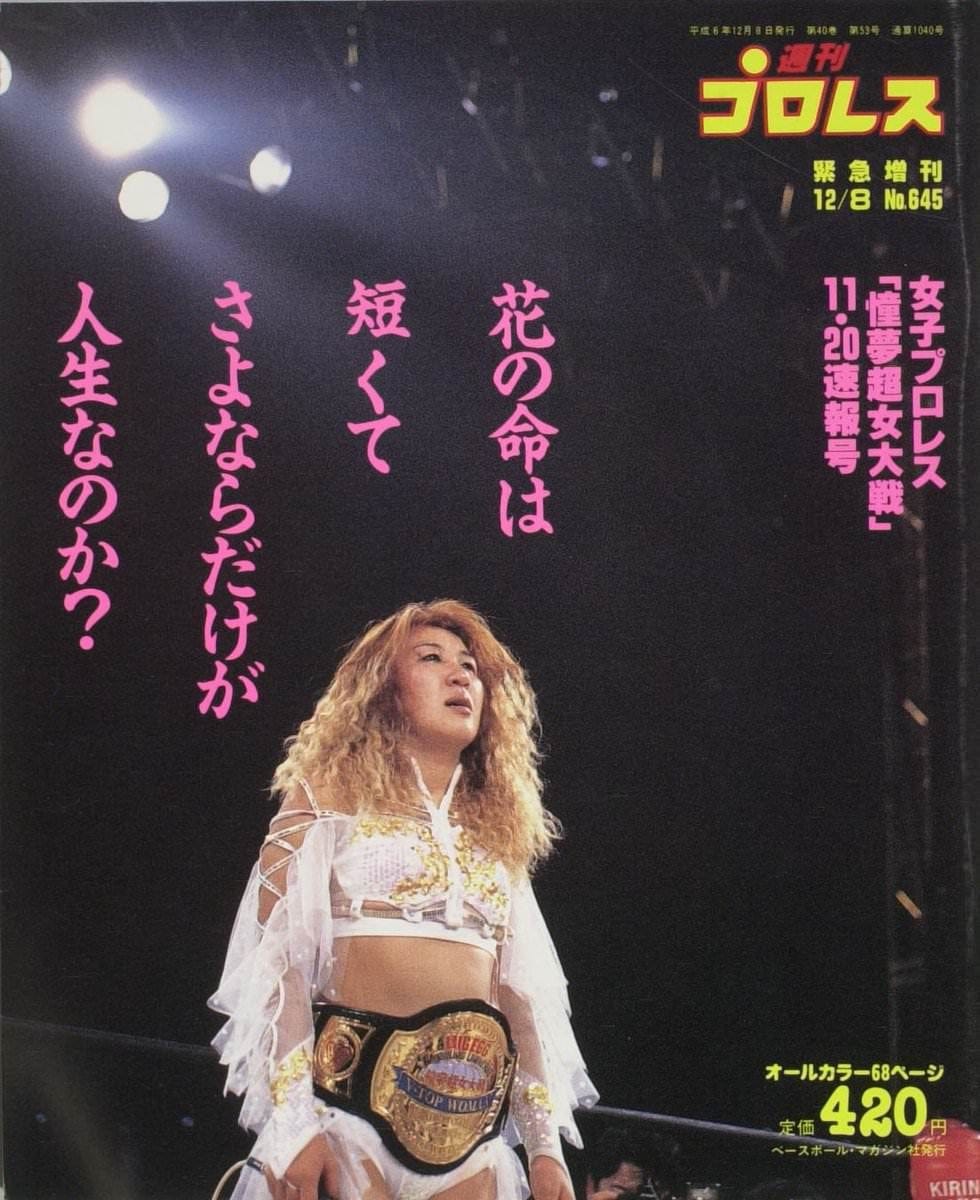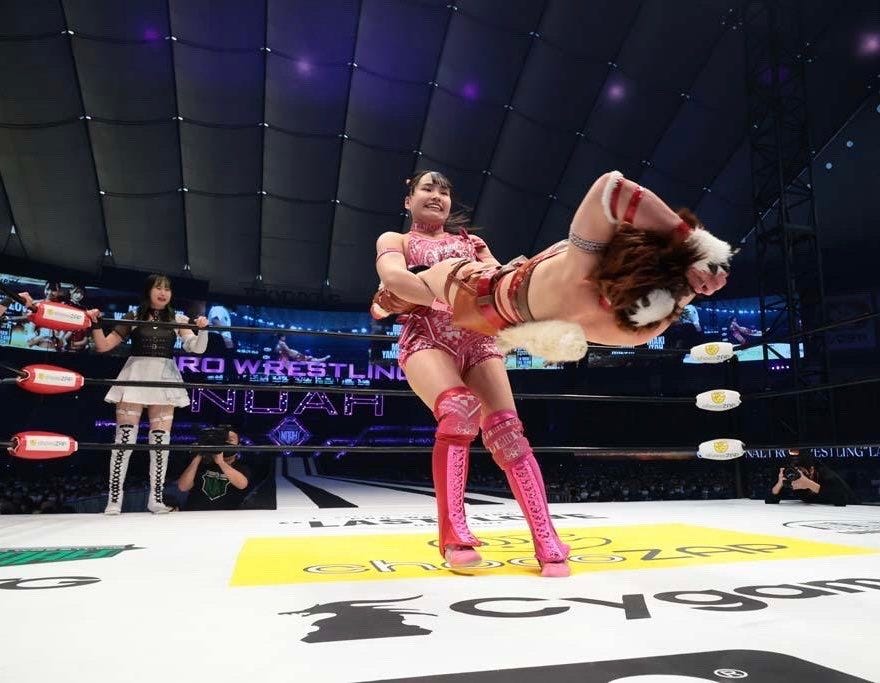Front Matter
The photographs used in this article are linked to the Twitter accounts responsible for them: simply click through to bring up the original post. If you are a photographer whose image I have used here, and you do not grant me permission to reproduce your work, please let me know (Twitter: @FlupkeDiFlupke) and I will remove it. Thanks!
写真家さん、ここにイメージが写すことが許可しなければ聞いて下さって私は大至急除きます (ツイターの @FlupkeDiFlupke です)。ありがとうございます!
Subscribe now!
Subscribe to Marshmallow Bomb for free to receive all our posts direct to your inbox, or donate $5 a month to access the full archive. A portion of every subscription supports Amazon Frontlines, an organisation dedicated to working with Indigenous peoples to defend their way of life, the Amazon rainforest, and our climate future.
Three years is a long time to live with ten hours of wrestling. This weekend we publish episode 15 of Big Egg Podcasting Universe: initially a fun project to try for a few months in 2020, dissecting every one of the 24 matches from the legendary Tokyo Dome show in November 1994. What started as a trip to the corner shop became The Odyssey.
It’s always been interesting, though. It’s given me a chance to get my teeth into researching the evolution of joshi throughout 20th-century Japan, from the first shows in the post-war period to the dominance of All Japan Women’s Wrestling (AJW), the eventual growth of smaller rivals like LLPW and successors like GAEA that paved the way for today’s promotions. Nearly 30 years after the original AJW Doumu Super Woman Great War - Big Egg Wrestling Universe, our final episode asks the question: could it happen again?
The industry is in another prolonged period of growth, though it’s not on the same scale as that which laid the Big Egg, so to speak. Audiences have continued to grow and Stardom and Tokyo Joshi Pro Wrestling (TJPW) are both regularly outdrawing men’s wrestling promotions in the same large venues.
We’ve had promising signs that at least some promotions are willing to work together – even Stardom joined in with the second mid-pandemic Assemble show, once the first had proved it could succeed without them and smaller companies had clearly benefited. Perhaps that helped to sow the seeds for this weekend’s other seismic event in joshi. Thirty years after the classic interpromotional show Dream Slam I, All Star Grand Queendom will see Stardom and invited guests work the Yokohama Arena where some of the biggest gates in joshi history were drawn.
It's not a Big Egg. For that it would need to embrace women’s combat sports more widely and include all the major joshi promotions. I doubt CyberAgent will ever agree to put TJPW talent in the ring with performers from Bushiroad-owned Stardom. DreamSlam 2023 feels as close as we’ll ever get, but I hope that doesn’t mean we also repeat what followed the original show.
The conditions that enabled Big Egg to happen also led to the industry collapsing under its own weight. When economic conditions made it harder for audiences to support a raft of varied promotions, gates declined. Because the industry had changed to embrace a larger male fan base, it no longer had the hit singles and magazine covers; its popular cultural footprint had declined and it had fewer ways to reach new audiences. AJW’s mandatory retirement age of 26 forced many of its biggest stars away and by the time it was relaxed to hold onto people like Manami Toyota, the damage was already done. Big Egg was the product of a bubble. The industry barely survived when it burst.
Now, the problem with living in a bubble is that you probably don’t know until it bursts. If that’s the case, there’s every chance that in a few years’ time we’ll look back on the good old days of 35-minute Guilia main events. But joshi is in a fundamentally better position that at any point in the 1990s.
Promotions have survived a pandemic, so we know they can withstand major social and economic shocks. They innovated. A no-fans show with a prize of barbecue vouchers would never have been possible in 1995 because there was no way to share it with an audience. TJPW, ChocoPro and every company that did something clever without a crowd has proven that the gate on the day is not the be all and end all. Wrestling companies have access to paying audiences worldwide and as a result they actually coped without selling any tickets at all. We used to think it might work; in 2023 we know it can.
Having two big promotions under corporate umbrellas gives a certain level of protection too. If there’s one thing we’ve seen in the past few years, it’s that big companies can not only withstand crises, but they can turn them into profit. With the resources to invest in building the Stardom and TJPW brands respectively, Bushiroad and CyberAgent have spent the past few years building companies that are both drawing in venues now crowds are back and winning fans internationally online.
Each will prevent the other from becoming hegemonic as AJW once was, but they effectively guarantee choice – both for joshi fans and for performers, who will know there is another full-time wage out there to be had. If that empowers more women to pursue careers in wrestling and ask for more once they get there, it will help build a more resilient industry for everyone.
And the word “everyone” comes up a lot in joshi. Whether it’s wondering which promotions will contribute to an Assemble show or booking a dream match in Ichigaya Chocolate Square, there is no end to the talent available to promoters or to fans. Almost everyone can now see almost everyone in the ring if they know where to look for the stream, which helps wrestlers build their reputations at home and elsewhere.
They can work with people from all kinds of different backgrounds who trained in different styles and do so in front of different types of crowd. The result is a generation of generational talents, trained by the likes of Emi Sakura, Meiko Satomura, Fuka and many more, who are producing the kind of matches that will be viewed in 25 years’ time the way that we watched Big Egg Wrestling Universe. Without a mandatory retirement age, most have the potential for decades-long careers.
There are many things preventing a repeat of Big Egg. Lack of performers is not one of them. It’s actually the biggest reason I believe joshi will not face the kind of death spiral that followed in the decade after that show. It doesn’t have to lose people the audience has grown to love just as they hit their prime. If there is a downturn in business – and all industries fluctuate – those stars will help promotions retain fans, even when the audience’s purchasing power dips.
Though no one company has the massive cultural impact that AJW had, joshi as an industry is on a more sustainable footing than ever before. I’d rather have that than another Big Egg.
The final episode of Big Egg Podcasting Universe drops later today. Get it by subscribing to the Puro Pourri Podcast on your podcast app







